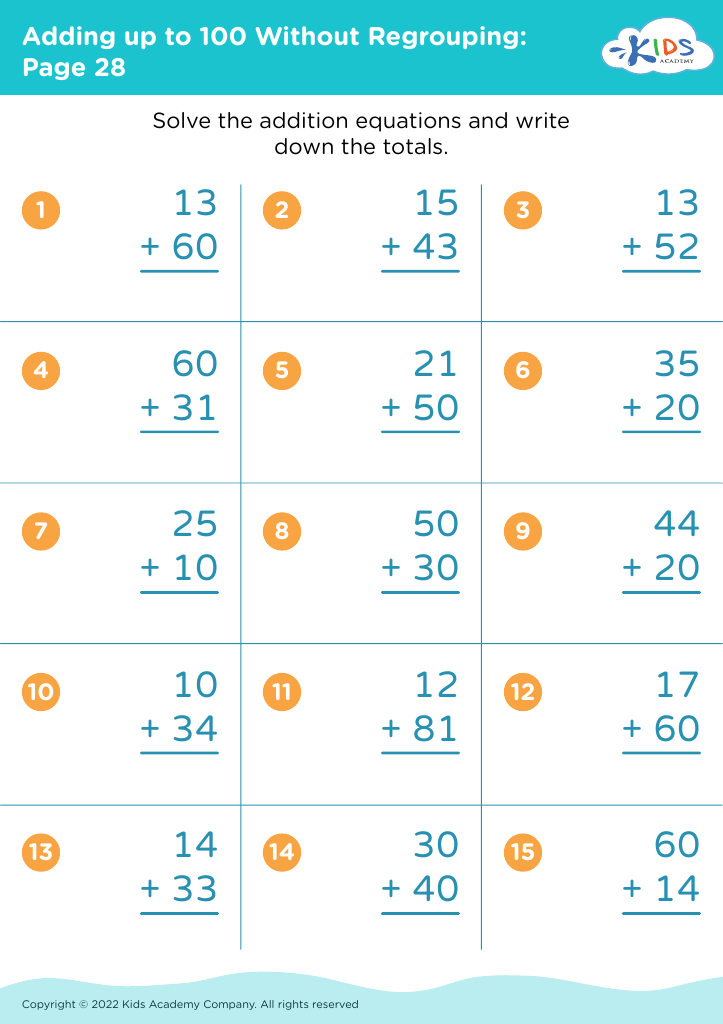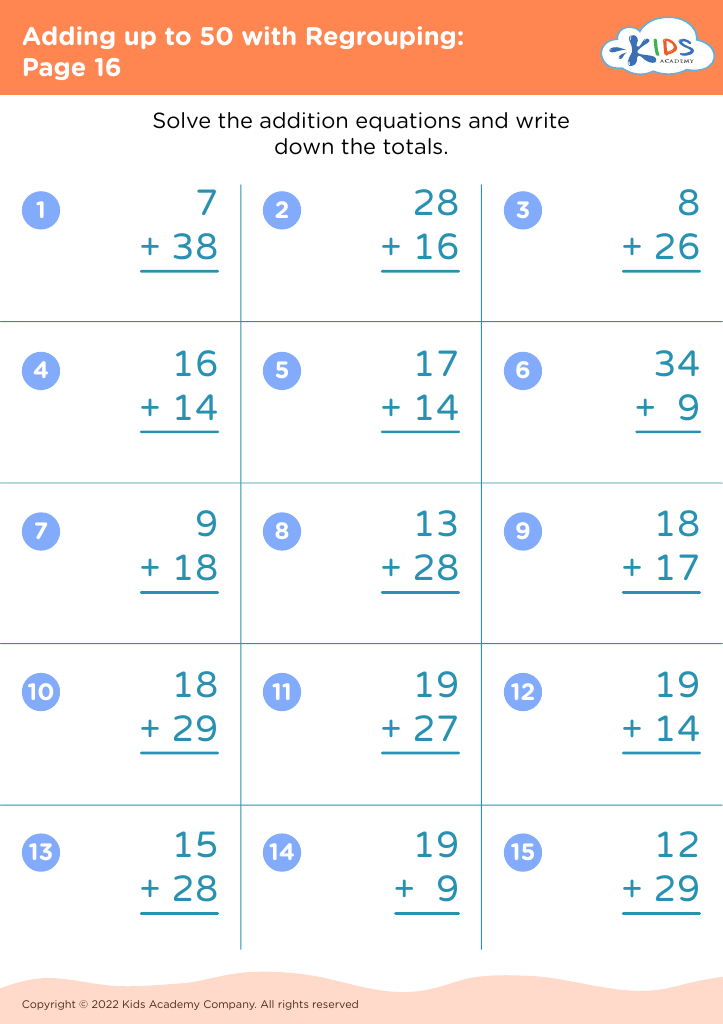Critical thinking development Addition & Subtraction Worksheets for Ages 5-9
3 filtered results
-
From - To
Enhance your child's critical thinking skills with our engaging Addition & Subtraction Worksheets designed for ages 5-9. These worksheets go beyond simple calculations, prompting young learners to explore problem-solving strategies and develop logical reasoning. Our interactive activities foster a deeper understanding of math concepts while encouraging creativity and analytical thinking. Each worksheet is tailored to challenge and motivate children, making learning both fun and effective. Empower your child to think critically about numbers as they practice essential math skills. Explore our collection today and watch your young mathematician thrive in a supportive learning environment!
Critical thinking development in addition and subtraction for children aged 5-9 is essential for several reasons. At this developmental stage, children transition from basic number recognition to a deeper understanding of mathematical concepts. By emphasizing critical thinking in addition and subtraction, parents and teachers foster problem-solving skills that extend beyond math.
Encouraging critical thinking helps children assess different strategies for solving problems, enhances their ability to reason logically, and boosts their confidence when tackling complex scenarios. It empowers kids to ask questions like “Why does this work?” and “Can I think of another way?” This inquiry-based approach cultivates a growth mindset, ensuring that children view challenges as opportunities for learning rather than obstacles.
Moreover, strong foundational skills in addition and subtraction become invaluable as children progress academically. These skills are the backbone of higher-level math concepts and applications in everyday life.
Lastly, instilling critical thinking during these early years can lead to better retention, improved math fluency, and academic success down the line. Therefore, parents and teachers should prioritize fostering an environment that encourages critical thinking in arithmetic, laying a strong foundation for lifelong learning and problem-solving.























